Sustainability in Recruitment: Aligning Talent with Corporate Social Responsibility Goals
In today’s competitive business landscape, sustainability has become a key focus for organizations across various industries. From reducing carbon emissions to promoting ethical practices, companies are increasingly adopting Corporate Social Responsibility (CSR) initiatives to demonstrate their commitment to the planet and society. However, sustainability goes beyond just environmental efforts; it also encompasses talent acquisition and management. In this article, we will explore the concept of sustainability in recruitment and discuss how organizations can align their talent strategies with their CSR goals.
Understanding the Concept of Sustainability in Recruitment
Before delving into the specifics of sustainable recruitment, it’s important to establish a clear definition of the term. Sustainable recruitment can be defined as the process of attracting, selecting, and retaining talent in a manner that aligns with an organization’s CSR objectives.
It goes beyond simply hiring individuals who possess the necessary skills and qualifications. Sustainable recruitment involves considering factors such as cultural fit, diversity and inclusion, and the long-term impact of talent acquisition on the organization’s CSR goals.
Defining Sustainable Recruitment
Sustainable recruitment involves adopting a holistic approach to talent acquisition, with a focus on ethical and responsible practices. It encompasses sourcing candidates who align with the organization’s values and purpose, treating candidates with respect throughout the recruitment process, and ensuring that diversity and inclusion are prioritized.
The Importance of Sustainability in Recruitment
Integrating sustainability into recruitment practices offers several benefits for organizations. Firstly, it helps to build a positive employer brand, positioning the company as an ethical and socially responsible employer. This can attract top talent who are passionate about making a difference and working for an organization with a purpose.
Secondly, sustainable recruitment contributes to talent retention. Employees are more likely to remain committed to an organization that aligns with their values and provides opportunities for engagement in CSR activities. By integrating sustainability into recruitment processes, companies can create a sense of purpose and engagement that fosters loyalty and reduces turnover.
Furthermore, sustainable recruitment also has a positive impact on employee morale and productivity. When employees feel that their organization is committed to sustainable practices, they are more likely to be motivated and engaged in their work. This sense of purpose and alignment with the company’s values can lead to increased productivity and overall job satisfaction.
Additionally, sustainable recruitment can have a ripple effect on the wider community. By prioritizing diversity and inclusion, organizations can create opportunities for individuals from underrepresented groups, contributing to a more equitable society. This not only benefits the organization by bringing in diverse perspectives and ideas, but also fosters social cohesion and reduces inequality.
Lastly, sustainable recruitment can help organizations future-proof their workforce. By considering the long-term impact of talent acquisition on CSR goals, companies can ensure that they are attracting individuals who have the skills and mindset to adapt to changing business landscapes. This proactive approach to recruitment can help organizations stay ahead of the curve and remain competitive in an ever-evolving market.
The Intersection of Talent Acquisition and Corporate Social Responsibility
Corporate Social Responsibility plays a vital role in attracting and retaining talent. Applicants, especially the younger generation, seek out organizations that are dedicated to making a positive impact on the world. By incorporating CSR initiatives into their talent acquisition strategies, companies can leverage these efforts to attract and engage top talent.
Furthermore, the alignment of talent acquisition with Corporate Social Responsibility can lead to a more holistic approach to recruitment. Companies that prioritize CSR in their hiring process not only attract individuals who are passionate about making a difference but also create a workplace culture that values social responsibility and sustainability. This can result in a more engaged and motivated workforce that is committed to the company’s mission and values.
The Role of CSR in Attracting Talent
Today’s candidates are more conscious of the impact their work has on society and the environment. They prioritize companies that demonstrate a commitment to social and environmental causes. By integrating CSR efforts into recruitment activities, such as showcasing sustainability initiatives on the company website or during job fairs, organizations can attract like-minded individuals who are passionate about their cause.
In addition to attracting talent, incorporating CSR into talent acquisition strategies can also enhance employer branding. Companies that are actively involved in CSR initiatives build a positive reputation in the eyes of potential candidates. This can give them a competitive edge in the talent market, as job seekers are more likely to choose employers who are socially responsible and aligned with their values.
How CSR Influences Talent Retention
Corporate Social Responsibility isn’t just about attracting talent; it’s also about retaining it. Employees who feel a sense of purpose and alignment with their employer’s values are more likely to stay committed to the organization in the long run. Taking part in CSR initiatives, such as volunteering programs or sustainability projects, fosters a sense of pride and engagement among employees, leading to higher levels of job satisfaction and retention.
Moreover, companies that prioritize CSR in talent retention strategies often experience lower turnover rates and higher employee loyalty. When employees feel that their organization is making a positive impact on society and the environment, they are more likely to feel connected to the company’s mission and values. This sense of purpose can lead to increased employee engagement, productivity, and overall job satisfaction, contributing to a more stable and motivated workforce.
Strategies for Integrating Sustainability into Recruitment
In order to truly align talent acquisition with CSR goals, organizations need to adopt specific strategies and practices that promote sustainability throughout the recruitment process.
Developing a Sustainable Recruitment Framework
One of the first steps in integrating sustainability into recruitment is to develop a framework that guides the process. This framework should outline the organization’s sustainability goals, establish specific criteria for evaluating candidates, and provide guidelines for incorporating CSR considerations into decision-making.
Furthermore, organizations should take a holistic approach to sustainability in recruitment by considering the entire candidate experience. This includes creating a positive and inclusive recruitment environment, where candidates from diverse backgrounds feel welcome and valued. By fostering an inclusive culture, organizations can attract a wide range of talent and benefit from diverse perspectives and ideas.
Additionally, organizations should revisit their recruitment processes to ensure they are inclusive and diverse. This includes implementing blind resume screening to reduce unconscious bias, offering structured interviews, and implementing diversity targets to increase representation at all levels of the organization.
Incorporating CSR into Job Descriptions and Advertisements
A key aspect of sustainability in recruitment is communicating the organization’s commitment to CSR in job descriptions and advertisements. By clearly stating the organization’s CSR initiatives and objectives, companies can attract candidates who are aligned with their values and purpose.
Moreover, organizations should go beyond simply stating their commitment to CSR and provide concrete examples of how sustainability is integrated into the organization’s operations. This can include highlighting specific sustainability-related projects or initiatives that candidates may have the opportunity to contribute to.
Furthermore, organizations should highlight specific sustainability-related responsibilities and opportunities for engagement within the job roles. This ensures that candidates are aware of how their work can contribute to the organization’s broader sustainability goals. By providing a clear link between the job and sustainability, organizations can attract candidates who are passionate about making a positive impact.
In conclusion, integrating sustainability into recruitment requires a thoughtful and comprehensive approach. By developing a sustainable recruitment framework, revisiting recruitment processes to promote inclusivity, and incorporating CSR into job descriptions and advertisements, organizations can attract and select candidates who are aligned with their sustainability goals and contribute to a more sustainable future.
Measuring the Impact of Sustainable Recruitment
The success of any recruitment strategy lies in the ability to measure its impact. By establishing Key Performance Indicators (KPIs) for sustainable recruitment, organizations can track their progress and make data-driven decisions to improve their efforts.
When it comes to sustainable recruitment, it’s not just about filling positions; it’s about finding the right candidates who align with the organization’s values and long-term goals. By focusing on quality over quantity, companies can ensure they are attracting individuals who are not only qualified for the job but also share a commitment to sustainability and social responsibility.
Key Performance Indicators for Sustainable Recruitment
Some key KPIs to consider when measuring the impact of sustainable recruitment include the number of candidates who align with the organization’s sustainability goals, the diversity and inclusion metrics of the talent pipeline, and the employee retention rates of individuals hired through sustainable recruitment practices.
Tracking these KPIs can provide valuable insights into the effectiveness of sustainable recruitment efforts. For example, monitoring the diversity metrics of the talent pipeline can help organizations identify areas for improvement in their recruitment processes to ensure they are attracting a wide range of candidates from different backgrounds and experiences.
The Long-term Benefits of Sustainable Recruitment
It’s important to recognize that the benefits of sustainable recruitment extend beyond short-term success. By aligning talent acquisition with CSR goals, organizations can create a positive impact on society, the environment, and their bottom line in the long run. Employees who feel connected to their organization’s purpose are more likely to be engaged, innovative, and committed, leading to increased productivity and business success.
Furthermore, sustainable recruitment practices can enhance employer branding and reputation, making the organization more attractive to top talent in the long term. Candidates are increasingly looking for employers who are committed to sustainability and social responsibility, and by demonstrating a genuine dedication to these values in recruitment processes, companies can differentiate themselves in a competitive job market.
Overcoming Challenges in Sustainable Recruitment
While integrating sustainability into recruitment may seem straightforward, there are challenges that organizations may face along the way. However, with careful planning and dedication, these challenges can be overcome to create a sustainable recruitment strategy that aligns talent with CSR goals.
Addressing Common Obstacles in Sustainable Recruitment
One common challenge in sustainable recruitment is finding candidates who possess the necessary skills and qualifications while also aligning with the organization’s CSR goals. This can be addressed by expanding the talent pool through targeted outreach efforts, partnering with sustainability-focused organizations, or offering training and development programs to bridge any skill gaps.
Solutions for Enhancing Sustainability in Recruitment
To enhance sustainability in recruitment, organizations can implement practices such as mentoring programs for diverse candidates, providing resources to support employee well-being and work-life balance, and creating a culture of inclusion and belonging that nurtures a sense of purpose and engagement.
Today, sustainable recruitment is more than just a trend; it is a strategic imperative for organizations seeking to attract, engage, and retain top talent. By aligning talent acquisition with corporate social responsibility goals, companies can build a positive employer brand, create a sense of purpose among employees, and contribute to a better and more sustainable future.
If you’re looking for assistance in aligning your talent acquisition strategy with your organization’s CSR goals, contact Jennings Executive Search today. Our team of experts can provide guidance and support to help you create a sustainable recruitment framework that drives long-term success and positive impact. Reach out to us now to learn more!
At Jennings Executive Search, our expertise in filling senior-level roles is matched by our commitment to sustainable recruitment practices. We understand the importance of aligning talent with your organization’s CSR goals, from Director of Pricing Strategy to Global Pricing Lead, to Sr. Manager of Pricing Strategy. Discover how we can elevate your talent acquisition strategy and drive your CSR objectives forward. Learn more about our approach and the impact we can make together.
About Jennings Executive Search
Jennings Executive Search is a premier executive recruiting firm specializing in connecting top-tier talent with leading companies in private equity, finance, pricing strategy, and consulting sectors. With a deep understanding of the nuanced needs of these industries, Jennings Executive Search stands out for its ability to source candidates who not only meet but exceed expectations.
Whether you are looking to build a robust team, find a transformative leader, or gain insights into talent trends in your industry, Jennings Executive Search is your trusted partner. Connect with us to discover how we can help elevate your organization’s talent strategy and drive success.

















